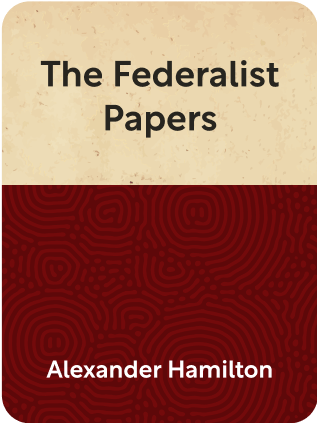

This article is an excerpt from the Shortform summary of "The Federalist Papers" by Alexander Hamilton. Shortform has the world's best summaries of books you should be reading.
Like this article? Sign up for a free trial here .
What is the Necessary and Proper Clause? How does Federalist 44 support it?
The Necessary and Proper Clause is a part of the Constitution that gives Congress the power to enact what’s needed to get things done. It’s meant to be adaptable, not tyrannical.
Read more about Federalist 44 and what it said about the Necessary and Proper Clause.
The Necessary and Proper Clause
In enumerating the purposes of the federal government under the new Constitution, Publius also took care to make explicit the powers necessary to achieve them in Federalist 44.
The Necessary and Proper Clause of the Constitution states that Congress has the power to enact all “necessary and proper” laws to enforce the powers it is granted. Opponents of the Constitution believed that this clause gave tyrannical power to Congress, but it did nothing of the kind. Rather, the very idea of establishing a government made the Necessary and Proper Clause self-evident.
It would be nonsensical to create a plan for a government and assign to it specific powers (say, to raise an army or collect taxes) without giving it the means to enforce those powers. That’s where the Necessary and Proper Clause fits, according to Federalist 44. It was also the right decision not to specifically enumerate the powers either assigned to or withheld from the federal government under this clause. Explicitly listing the powers granted to the government would have implied that it lacked those powers not enumerated; explicitly listing those denied it would have implied that it possessed all the powers not denied.
The framers of the Constitution could not have known how society and law would develop over time; overly constraining or empowering the government by listing specific powers could have the effect of making it difficult for it to respond to future situations. Instead, it was better to let future politicians, judges, and citizens determine the specific scope of federal power with the Necessary and Proper Clause.
The Necessity of the New Constitution
As we’ve seen, the proposed Constitution was a controversial issue at the time of The Federalist Papers. Opponents raised various objections against it, although many of these individual objections contradicted each other.
- Some claimed that it gave too much power to the smaller states through their equal representation in the Senate.
- Others claimed that the proportionate representation by population in the House of Representatives gave too much influence to the larger states.
- Critics in the manufacturing states objected to the power of direct taxation (because they feared it would fall heavily on their goods), while agricultural states opposed the federal government’s power to tax imports (because they feared it would make the foreign manufactured goods upon which they relied too expensive).
- Those in the more agricultural states, meanwhile, objected to the federal power to tax imports.
The Exercise of Power
The Articles had actually already granted most of the same powers to the federal government that the new Constitution proposed to. The difference was that the Articles gave the federal government no effective tools by which to exercise those powers, because the states were too strong. The result was a federal government that was forced to go outside the bounds of law to secure the public good.

———End of Preview———
Like what you just read? Read the rest of the world's best summary of Alexander Hamilton's "The Federalist Papers" at Shortform .
Here's what you'll find in our full The Federalist Papers summary :
- The genius of the founding fathers in how they designed the United States Constitution
- Why it was critical for the United States to form a union rather than stay separated as colonies
- How Alexander Hamilton anticipated social issues that are still relevant today






